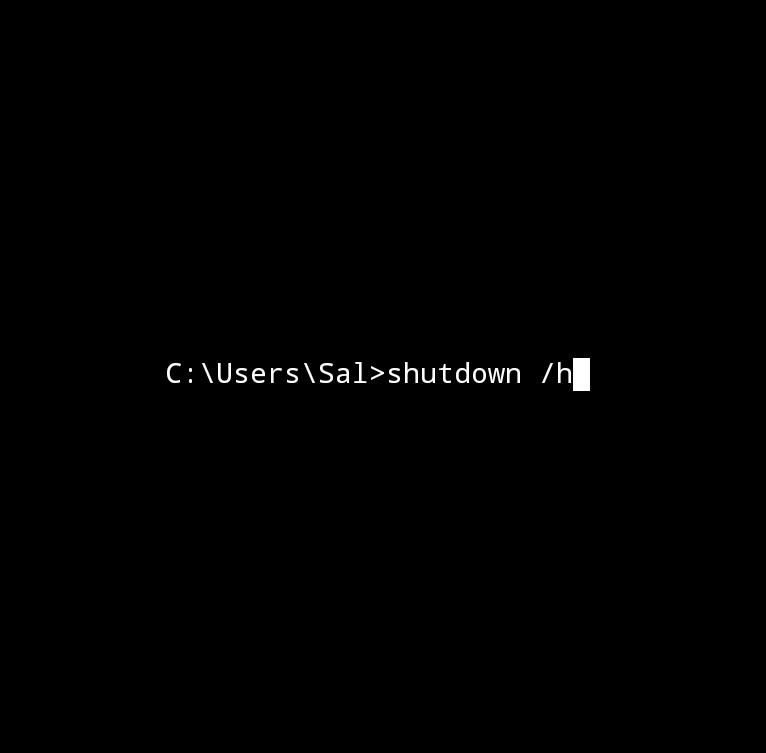Which audio codec are you people using when ripping cd’s? I used wav but the size made it not really fitting on my phone (60GB) I switched to FLAC. Many people I talked to said that CD’s just use mp3 codecs in the First place.
Unless the disc is burned as a data CD containing MP3 files, then they are supposed to be audio CDs containing lossless PCM data (almost literally WAV). This is definitely the case unless the MP3 is converted to WAV then burned as an audio CD.
If you want to store the audio from an audio CD losslessly, then there are no benefits in choosing WAV over FLAC. That is just wasting storage, since a FLAC will store the WAV without any loss.
If you don’t mind changing some bits resulting in a lossy but virtually indistinguishable-from-the-original quality, then use a modern lossy codec like Opus (or even AAC or even Vorbis). That way, you save a ton of space without affecting the sound quality, assuming you chose a high enough bitrate setting.
My recommendation is keep FLAC archived on your pc or other external storage and use opus on your phone
Exactly!
In case it helps anyone, I made a (rather frugal) tool called kmus for keeping a list of songs you like to have on your phone, and then syncing that list of songs to your phone with automatic lossy compression. It’s extremely customizable. Admittedly I made it for my own use but I’m sure anyone can modify it for their own purposes.
FLAC can have metadata too. Not so for WAV files
It’s worth keeping everything archived somewhere in FLAC if you care about it, because that’s lossless and you can convert it to newer cooler formats in the future. Opus is currently the best lossy audio codec - if you need space on your phone, convert an additional ~128kbps Opus copy of your library for transparent quality and super small filesize.
Don’t believe anyone trying to sell you on the idea that FLAC sounds better than an appropriately compressed (read: transparent) lossy format: Opus ~128-160kbps, MP3 ‘V0’ (~215kbps), MP3 320kbps, AAC ~150kbps.
Check the “Music encoding quality” table on this page for more info on Opus bitrates and how they relate to transparency.
Don’t believe anyone trying to sell you on the idea that FLAC sounds better than an appropriately compressed (read: transparent) lossy format: Opus ~128-160kbps, MP3 ‘V0’ (~215kbps), MP3 320kbps, AAC ~150kbps.
Only partly true. If the rest of the chain is of decent quality (hi-res sound card, proper cables, quality headphones/speakers/monitors), then the difference between lossless and lossy is apparent to a trained ear. Especially the lack of dynamics and space is typical of lossy formats.
Personally, I never understood why I would want to listen to anything but lossless in the first place. I never really had to worry about storage space too much for my music to consider converting it to a lossy format. I am more of a user who likes to archive stuff; therefore, lossless and FLAC are the only future-proof ways if you want to listen to your files in the next 25 years or so.
Can you post an ABX test of you detecting lossless and lossy files? It’s all fun and games to talk about how $400 cables and “trained ears” are required to tell the difference, but when it comes time to do ABX testing people seem to vanish.
It is not about the price. You can buy great stuff for $500 altogether, and you can only splash $500 for one piece of a sound chain, which was not really necessary in the first place (often people buy super expensive headphones and then listen on a cheap Android phone some 128 kbps MP3s - amazing, really!). It is all about balance. Personally, I do not aim for hi-end sound equipment, but I have also heard enough of the spectrum that I know I will not be satisfied with low-end devices.
That’s why I settled for mid-tier offerings, and I am happy with my setup, knowing fully well that if anything goes bad, at least I will be able to replace it without taking a loan. After all, if you want to go hi-end, then you better have the cash to stay hi-end when necessary, and I have plenty of other hobbies to splash too much on sound.
I agree - especially in the audio world, you hit diminishing returns very fast on audio equipment.
This is still not an ABX test though. Placebo effect is very real in audio, and unless you’re using a dedicated ABX test it’s easy to claim that you are just “better trained” than everyone else. Above all else, the most important factor for determining “audio quality” is just volume. Setting up a proper test with exact volume matching is vital, otherwise everyone always picks the track that sounds slightly louder.
If you do not even have high-end audio equipment but can tell the difference between a lossless and (transparent) lossy format, then it should not be difficult to perform an ABX test and confirm this. If you do not know what sort of ABX tests can be used for this task, it makes me wonder how you’ve come to this conclusion about your ears and your equipment in the past. The level of precision needed to definitively pick a lossless codec over a transparent lossy codec requires such extensive test setups in order to be statistically significant.
If anyone else reading wants to have some fun with a not-airtight ABX test, try your ears on these tests. It’s easy to handwave something like this due to it living in-browser and using hand-picked songs, but it’s still a fun experiment to try.
I tried it for fun and yeah with my gear i can’t hear any difference really.
Only if you happen to be sending over bluetooth and it’s being re-conpressed. Even then you would need good headphones and ears to ABX that.
Don’t talk “space” and dynamics if you don’t know what they mean. “Space” is an audiophile weasel word that boils down to noise in the 10k band
I’m archiving my music but listening to them on my Phone with like 100€ Bluetooth headphones (which use ACC 128kbit). Doesn’t really help the quality even when it is Flac.
deleted by creator
Thanks for the information and table of contents to look at. I will maybe switch the content of my personal audio library for my Phone to Opus. Will just take some time for ffmpeg to convert it.
While it depends on a number of variables; such as your own personal preferences and quality of the audio hardware you’re using; FLAC is indeed better. Given appropriate tuning and hardware, you don’t need a trained ear to hear the difference.
It is however possible to prefer compressed music. In fact, I myself tend to be fine with anything down to 128kbps MP3 or comparable compression. That doesn’t mean I do not notice it; but it’s “tolerable” in quality. I grew up around the late stages of Analog FM radio; so anything that can manage to sound better than THAT is actually good! For reference you were lucky to pick up what is equivalent to a 96kbps MP3 if you had optimal signal strength and things very quickly devolved to a staticky 8kbps experience if you had very minimal signal.
For storing music on-the-go; I actually recommend considering 192kbps MP3 if you don’t mind the “Lossy” sound and just wanna cram as much music as possible onto storage without it sounding absolutely terrible.
If “Lossy” is just not an acceptable option for your tender ears; I recommend Ogg Vorbis (Android & all of it’s variants) at standard bitrates or AAC (Apple) depending on your mobile device OS.
If you’re willing to carry around a limited library/playlist and want to emphasize quality; I can’t recommend FLAC enough.
CD Audio came way earlier than mp3… It is CDDA, Compact Disc Digital Audio. For its spec, please give wiki a read. FLAC is a good lossless alternative to WAV. I have most of my collection in FLAC too.
Thanks I will give it a read. Never really knew were to look for it really much.
CD audio is its own standard with a bitrate of 1411kbps and is considered “uncompressed”. Professionally mastered CDs are not just a bunch of mp3s on a disc. FLAC is definitely worth it if you have the space.
I mean I went from 60GB wav to 60GB Flac but now with more Music. With now 60GB more to use.
There seems to be a lot of misconceptions in the music community regarding the differences between 320kbps mp3 and FLAC format. It is true that 320kbps is technically as good as FLAC, but there are other reasons to get music in a lossless format.
Hearing the difference now isn’t the reason to encode to FLAC. FLAC uses lossless compression, while MP3 is ‘lossy’. What this means is that for each year the MP3 sits on your hard drive, it will lose roughly 12kbps, assuming you have SATA – it’s about 15kbps on IDE, but only 7kbps on SCSI, due to rotational velocidensity. You don’t want to know how much worse it is on CD-ROM or other optical media.
I started collecting MP3s in about 2001, and if I try to play any of the tracks I downloaded back then, even the stuff I grabbed at 320kbps, they just sound like crap. The bass is terrible, the midrange…well don’t get me started. Some of those albums have degraded down to 32 or even 16kbps. FLAC rips from the same period still sound great, even if they weren’t stored correctly, in a cool, dry place. Seriously, stick to FLAC, you may not be able to hear the difference now, but in a year or two, you’ll be glad you did.
Unfortunately, it seems you have a really bad misconception as well.
Sorry, no, files (be it MP3 or FLAC or MP4 or whatever) do not degrade over time. Not one bit. Yes, storage devices do degrade and ultimately break down, but that does not result in MP3 files “losing 7 to 15 kbps per year”. Digital files are like that—digital. They don’t suffer the same degradation like vinyl where each playback damages the grooves and looses definition. Digital files are a bunch of zeros and ones (be it MP3 or FLAC or whatever) and it’s either those bunch of numbers makes sense to the player (as in, it plays) or not (as in, the player shows an error saying it can’t play the file).
What you have experienced as “degradation” probably isn’t the result of files degrading over the years. See, when MP3 was invented, the early encoders produced relatively bad sound quality for a given bitrate. They just can’t pack that much information into 128kbps without affecting the sound quality. Over the years, many countless improvements were made to MP3 compression technology, and modern software like LAME can produce really good sound quality even at relatively low bitrates. That makes old files encoded using old encoders sound worse than new files encoded using new encoders at the same bitrate.
MP3 doesn’t even support 16kbps, so I can’t imagine your storage device delicately removing bits from your MP3 files to reduce the bitrate without corrupting them, since storage devices can’t even see the boundary between files—it only sees all the files as one huge string of numbers without any sense. Also, I can imagine your MP3 file shrinking in size every year if they do lose bits over time. Many filesystems also offer integrity checks on files, so your computer will alert you if something unintentional changes on your storage. Even some Linux filesystems will show an error if a single bit unexpectedly changes on one of your files.
Wherever you read that misconception, please don’t believe it. Digital files are not affected by quality degradation, and it’s either they play, or they don’t play.
Hopefully you take this as a friendly message, and if this has been a joke and I’ve been whooshed, then you had me very well.
I can’t tell if I’m being double-whooshed, but ‘rotational velocidensity’ is a very old meme. Your post is fully correct though, so good job!
Yeah, looking back, I’ve probably been whooshed, but I’d be very happy if I can at least help prevent someone from unknowingly falling for it. I’m a software developer as a profession, and I can’t take false misunderstandings about digital stuff like this. Also as a digital audio enthusiast, I understand that digital audio is superior in every way at least theoretically but I also accept that some analog formats (like vinyl) have better mastering and can sound better than their CD re-releases.
Peace!
I think it is just a joke, because of course IDE is still better in quality Preserving than Sata.
Make sure to only transfer MP3 files to your memory card using the serial port—USB degrades the sound quality by around 12 kbps per transfer /s
Had me in the first… third.
Should have stored them in the freezer. That’s what I did, and I can still enjoy my 128kbps weird al mp3s from before y2k. Had a backup on CD in my attic, and tried it recently just for kicks… got an earful of actual mud. Took me a couple hours to get it all out of there with windex and qtips, but at least I can hear again.
Sorry man, they’re too young to get it
Just go with FLAC, music doesn’t take “too much” place so I don’t feel like sacrificing the quality for it.
Presumably you’re ripping to archive/store that data long term in which case you should use a lossless codec like FLAC.
OTOH if you’re planning on re-ripping these CDs every year or something then it doesn’t really matter what codec you use since you’re going to do the work all over again anyway.
I’m archiving but also listening to them. I use navidrome as an audio server. But with Mobil internet it’s like 1h waiting for 10s music.
Your music streaming software should be auto transcoding your music files so that it streams quicker to your mobile. Maybe look into forcing it to transcode to a lower quality so it streams faster? I’ve never heard of navidrome but other software does that stuff without thinking about it (Jellyfin for example).
It does support it even on a client bases. Navidrone is a server using the subsonic api. It just takes ages on my little pi to transcode.
All my old collection is on mp3, the bitrate vary between 320kbps & VBR V0, but in last years I usually prefer download in FLAC, so when It comes to save space I convert into mp3 320kbps.
That’s why I got a Sony phone which has 3.5mm jack + SD slot
I still have a SD slot. Just not in the mood to buy a 256GB SD Card and copy all and stuff.
I have one too. Too bad their battery life is very average and they only have 2 years of updates. Otherwise they would be almost the perfect phone!
What about the battery life? I only charge my Xperia 1V once per day
My 5ii drains about 0.5%-1% per hour with 0 screen time with 5g turned off. If I use it I get about 5h of SoT maximum. The battery is at 70% integrity according to accubattery even though I have had charging pinned to 80% max since I got it 2 years and a bit ago. My shitty Nokia did battery on battery integrity than that.
Sometimes if I have little signal, it will drain 5% per hour because I guess they just set it to “retry as often as possible for as long as possible and fuck battery life.”
In contrast, my girlfriend’s A52 can go the entire night and lost about 3% battery. She uses it more than me and regularly has 50% left at the end of the day to my 10-15%. If we are both in the same low signal, hers will last 5x as long as my 5ii.
If I use it at all for anything besides a bit of messaging I have to charge it around 16h.
I still have a SD slot. Just not in the mood to buy a 256GB SD Card and copy all and stuff.
Most people use lossless audio codecs such as FLAC or ALAC. Other people still might use lossy codecs like MP3 or AAC/ You can choose a codec whlie ripping music from CD depending on your needs for quality versus file size.
Many people I talked to said that CD’s just use mp3 codecs in the first place.
That may be partly true for non-original CDs made out of MP3 files via CD burner, but original CDs should not be “crippled” like that.
I think this debate is kind of late, at least a decade late. FLAC has clearly won; it is available everywhere and shall stay that way thanks to its open-source nature. With increasingly cheaper physical storage (SSD, HDD) and more affordable cloud storage, I think FLAC’s longevity aspect just beats everything, even though there may be other codecs such as Opus which may provide a better compression/quality ratio.
But if you only care about lossless, just go with FLAC and enjoy your tunes. ;-)
I’d love to have everything in FLAC for preservation’s sake, but I’ve settled for Apple’s QAAC. Great quality, small size, universally supported.
Oh never heard of it. Could you give informations about the listening quality?
I believe its an quicktime encoder for AAC and ALAC so the quality would be that of AAC















